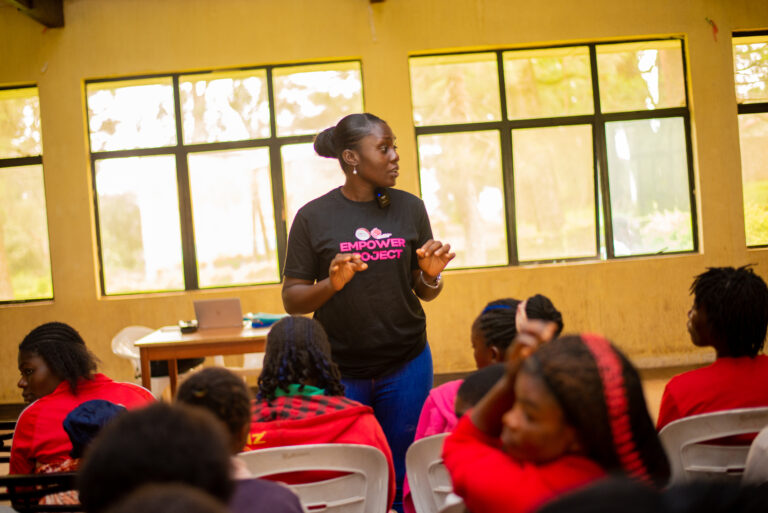My volunteering journey began 8 years ago, and it has been one of the most rewarding experiences of my life. From starting as a volunteer to eventually leading a non-profit, I’ve come to understand the immense power of giving back. In this blog, I’ll share valuable insights and tips to help you navigate your own volunteering path. Before you dive into this fulfilling journey, it’s important to grasp a few key principles that will ensure your experience is both impactful and rewarding. Curious about what volunteering is and why it matters? Let’s break it down.
What Is Volunteering and Why Does It Matter?
At its core, volunteering involves giving your time, skills, or resources to a cause or organization without expecting financial compensation. It’s about helping others, whether that means offering your expertise, supporting a local initiative, or lending a hand to someone in need. Volunteering is crucial because it strengthens communities, promotes social change, and helps to address pressing challenges that affect our world. It’s a two-way street: you help others, and you get the chance to grow, learn, and make lasting connections.
Now, if you’re ready to take on the volunteer challenge, here are five things you absolutely must know:
1. Passion First: Let It Guide Your Journey
Passion is the driving force behind successful volunteering. If you’re going to dedicate your time to a cause, it should be something you truly care about. It’s easy to get caught up in the excitement of volunteering, but when you’re genuinely passionate about the issue at hand, it’s easier to stay committed and make a real difference.
So, ask yourself: What am I passionate about? What issues do I deeply care about? And which organizations are actively working on solving those issues?
Once you have answers to these questions, you’re already on the right track. Whether it’s advocating for gender equality, working to combat climate change, or helping underprivileged children, aligning your passions with the work you do will make every moment spent volunteering worthwhile.
2. It All Comes Back to You: The Benefits of Volunteering
Let’s get real for a second. Volunteering isn’t just about helping others—it’s about helping yourself too. When I started volunteering as a second-year university student, I was passionate about ending violence against women and girls and empowering young girls. But my friends? They didn’t quite understand why I was giving my time to causes that seemed to have nothing to do with my studies.
They mocked me, laughed at me—after all, I was a student with a hectic schedule. But, fast forward to today, and I can confidently say that my volunteering experience has played a huge role in my career. I didn’t have to rely on my university degree to land a job because the skills I developed through volunteering—communication, teamwork, leadership, and networking—have opened more doors than I ever imagined.
Volunteering equips you with both hard and soft skills, many of which are invaluable in the professional world. It also provides a network of connections that you can leverage throughout your career and personal life. The truth is: when you give, it often comes back to you in ways you least expect.
3. Think Before You Commit: Quality Over Quantity
It’s common for young people to get excited about volunteering opportunities and commit to too many at once. While you might feel like you’re expanding your horizons, it can quickly lead to burnout or, worse, to not fully delivering on your commitments.
Think about it: when you stretch yourself too thin, you may find that you’re spreading your energy in so many directions that you’re not making a meaningful impact in any one area. Organizations will eventually lose trust in your ability to commit fully to a task if they feel you won’t be able to consistently show up.
Instead of saying “yes” to everything, take a moment to think about your capacity and choose opportunities where you can focus your energy. It’s better to commit to one project wholeheartedly than to overcommit and risk doing a disservice to both yourself and the organization.
4. It’s Okay to Learn and Grow as You Go
One of the most powerful aspects of volunteering is the learning experience. You don’t need to have all the answers when you begin, and you certainly don’t need to be an expert in the field. Volunteering is a journey, and part of that journey involves learning as you go.
When I first started volunteering, I didn’t have all the answers. I learned about the issues at hand, discovered new perspectives, and gained valuable insight that helped me evolve both personally and professionally. Don’t be afraid to make mistakes or ask questions. Embrace the process and take advantage of every opportunity to grow.
5. Be Consistent: Show Up, Every Time
Consistency is key to making a lasting impact as a volunteer. Whether you’re working on a short-term project or a long-term initiative, showing up consistently proves your reliability and dedication. It’s easy to get caught up in the excitement at the beginning, but the real difference happens when you continue to show up, day after day, week after week.
If you’re committed to a cause, stay true to your word. Volunteers are the backbone of any organization, and consistency is what helps build trust with those you’re working with. It shows that you’re dependable and that you genuinely care about the cause.
Ready to Start Your Volunteering Journey?
Volunteering is a powerful way to make a difference and grow in ways that extend beyond what you might expect. By following these key principles, you’ll not only contribute to important causes but also build a fulfilling and rewarding experience for yourself.
Remember, the journey is just as important as the impact you make. So, what are you passionate about? What steps will you take today to start your volunteering journey?
For more information visit our blog.

